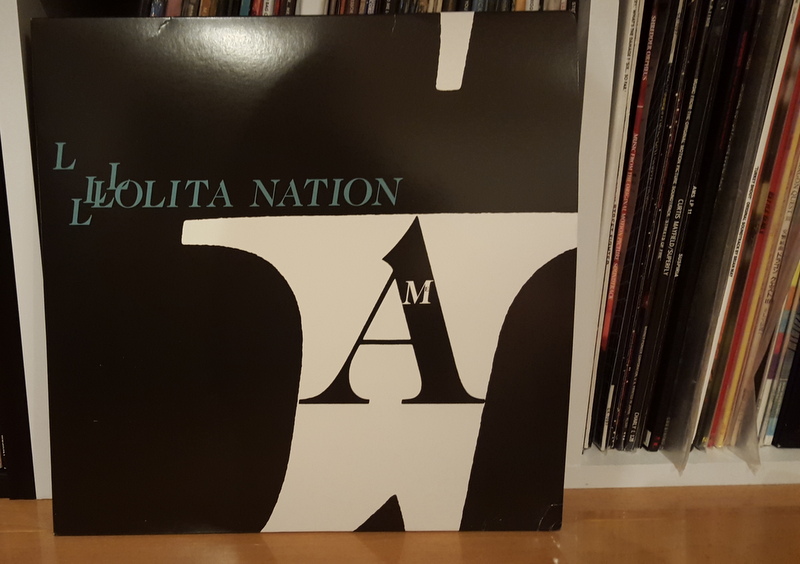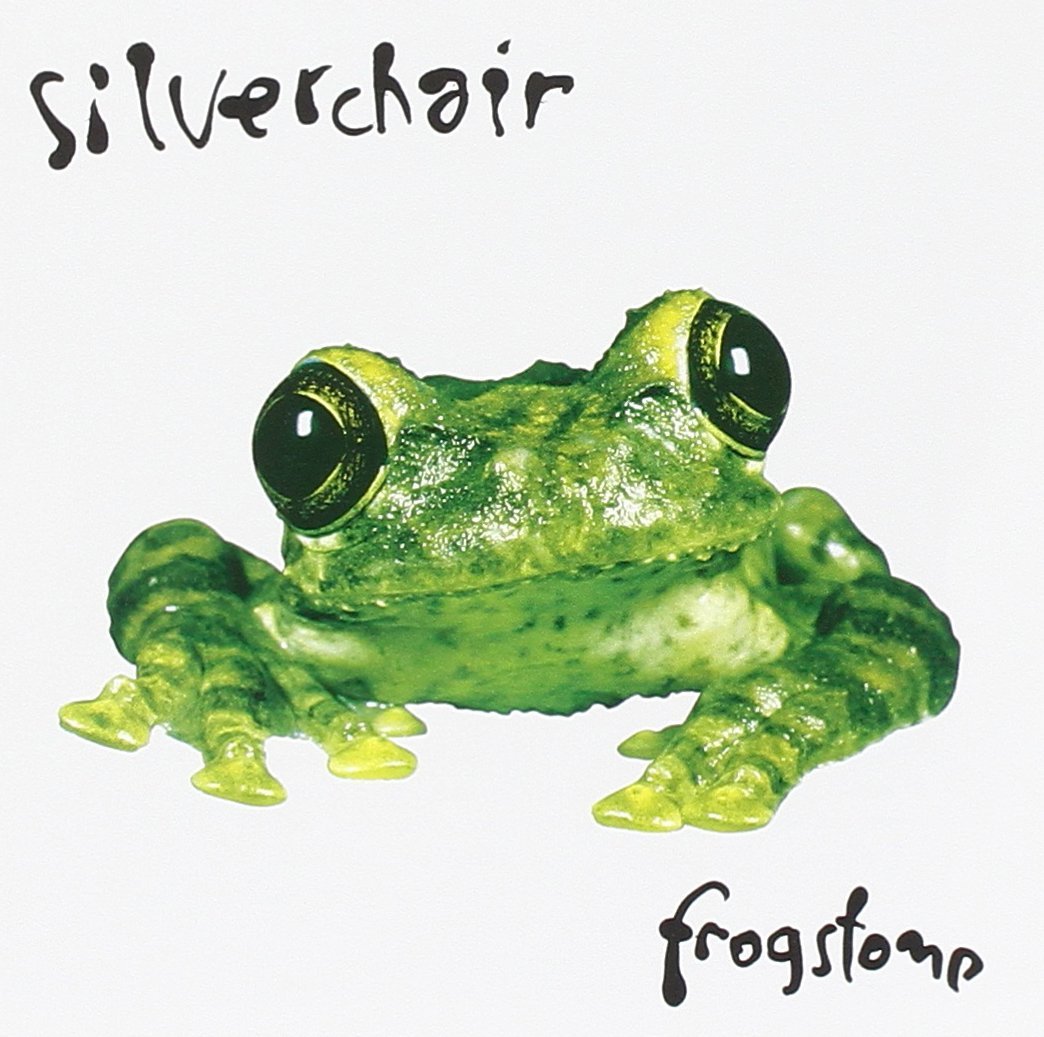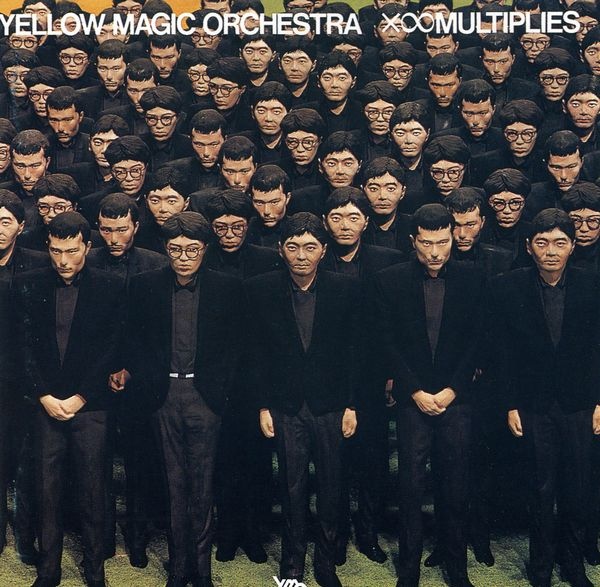Vinyl/CD Review: Game Theory – Lolita Nation

One of my favorite movies is As Good As It Gets, the 1997 romantic comedy/drama with Jack Nicholson and Helen Hunt. It’s a great movie for a lot of reasons, and every time I watch it I notice something else fantastic about it. But one part that always stuck with me is the scene where Jack’s character, having thoroughly pissed off Helen Hunt on yet another occasion, is ordered by Hunt to pay her a compliment to keep her from walking out on him. Flustered and desperate, Jack launches into a somewhat rambling story about how, after she told him off a few nights prior, he finally listened his doctor’s orders and began taking some anti-depressants to help curtail his more unpleasant behaviors. His rationale, he explained, is that she made him want to be a better man. Hunt’s character is visibly taken aback, and declares it to be the best compliment she ever received.
I bring this up because the first time I listened to Game Theory’s Lolita Nation, it blew my mind in such a way that I began to seek out more music, expand my tastes and read as much as criticism as possible. It’s so good that it made me want to be a better writer so I would do a better job of describing what at the time I felt to be its impossible-to-define brilliance.
I don’t know if I’m there yet, but now’s the time to try, as the album is finally back in print thanks to the remarkable efforts of Omnivore Recordings, who have brought the album back to store shelves in both a deluxe 2CD package and a beautiful colored 2LP release as well. Continue reading
Japanese Record Store Tributes To David Bowie

David Bowie passed away a month ago, but I still haven’t fully processed the news. It’s still hard to believe that he’s no longer with us. He was such a presence in the pop world. And his music meant more to me than anyone else’s.
And his death wasn’t just a shock and tragedy in the Western world. David Bowie was huge internationally, especially in Japan. Even before his death, it was hard to miss Bowie’s section in most record stores here, and even less well-regarded albums like Never Let Me Down or his output with Tin Machine seemed to be held in at least some esteem here. Not a week goes by where I don’t see a rare Bowie LP go for an insane amount of money at any of the multitude of record stores here in Tokyo.
In Japan, record stores have a bit more personality than their Western counterparts. Even in major chains, it’s not uncommon to see handwritten recommendation notes by the staff, and custom tailor-made displays dedicated to more obscure artists and genres. With Bowie’s passing, many of these same stores have taken to commemorating his legacy with similarly DIY, custom-made displays. In the days and weeks in the wake of Bowie’s death, I visited several Tower Records and other stores to see how they were handling the Starman’s passing. I was pretty impressed.
And now I know how to spell David Bowie in katakana – デヴィッド・ボウイ。
YMO 101: Etc.
This is part three of my guide to Yellow Magic Orchestra.
Part 1: The Studio Albums
Part 2: The Live Albums
Part 4: The Solo Records
Part 5: The Pre-Cursors and Side Projects
Part 6: The Protégés, Associates and Etc.
This is where things get tricky.
Writing about YMO’s studio albums was an easy endeavor. There aren’t that many of them and most are worth owning. Simple. Writing about the live albums was a bit more of a chore, but there’s still so much good to be found there that it was easy to decide what to recommend for everyone and what should only be sought out by the hardcore fans and collectors.
The compilations/remix albums and EPs portion of YMO’s back catalog is a bit more difficult. Mostly because it’s so massive, but also because it’s wildly uneven. Like any great band that’s a proven cash cow for a label, YMO’s music has been repackaged, remarketed, remixed (badly) and re-released about a thousand times over. Some of this stuff is great, and undoubtedly worth seeking out.
Sadly, much of it is not. And that’s why this chapter of my guide will probably be the most negative. A lot of these releases were put out as cash grabs, and they sound like it. Still, there is some great stuff to be found in here, so I hope you this is a help to someone.
And if you want the TL;DR version, buy UCYMO and the album below.
×∞Multiplies (1980)
Thirteen David Bowie Songs I Want To Write About
Had planned to write a lot this week about a lot of different things. But David Bowie died and that’s all I can think about so that’s all I’m going to write about.
A few people have asked me what my favorite David Bowie songs are. That is not this list. I couldn’t make that list if you put a gun to my head. There are too many. Instead, these are the songs I think about the most when I think about Bowie, and the ones that trigger specific memories or feelings.
No artist has ever effected me as much as David Bowie has. I suspect it will be a while before I’m able to move on from this one.
Scary Monsters
There are countless David Bowie songs for nearly every mood or activity imaginable. He has love songs ideal for slow dancing; sexy songs for getting your groove on; bitter tracks for post break-up self-loathing; political tunes for when you feel like nothing is right with the world; and upbeat dance numbers for when you just feel like dancing and having fun.
This is the only David Bowie song for kicking someone’s head in. That’s probably not why it was written, but that’s how it makes me feel. Continue reading
New Order: Music Complete Box Review

This is not a review of a box set. This is not a music review. This is not even an audiophile review judging the audio quality of a product.
This is a review of a box.
Yes. Just a box. Nothing else. Because I feel this box is a box worth talking about.
Now, for an object like a box to merit a full-length review, it must obviously be exceptional in some way. Either it’s exceptionally good, or exceptionally bad.
I am not known for being a positive person, so I can assume you know where this is going. Continue reading
Scrunged: Stone Temple Pilot’s Tiny Music…Song’s From The Vatican Gift Shop

Scrunge (second-rate rip-off grunge) is a largely forgotten genre, and every few weeks I’m going to examine a scrunge act or two and see if they deserve a second chance. Today’s band: Stone Temple Pilots.
As I’m writing this, it’s been less than a week since Scott Weiland was found dead in his tour bus at the too fucking young age of 48. As such, I’m awash in a sea of tributes, eulogies, think pieces and listicles celebrating his legacy. Sadly, I wonder how many of them were on file and ready to go, minus a few key dates and recent events, considering the singer’s long-standing issues with drug and alcohol abuse.
When these articles look back on Weiland’s time with STP, they all seem to touch on the same points. The band’s first two albums were wild successes that outsold many of their contemporaries. At their peak, the band’s success was stymied due to Weiland’s legal issues related to his various addiction. When the band was finally able to continue with a (questionably) sober Weiland in the early 2000s, the spark was gone and they broke up. Weiland went onto record a couple of albums with Velvet Revolver, briefly rejoined STP for a self-titled reunion album, and then left the group again, this time on seemingly even more hostile terms.
Then the band recruited the guy from Linkin Park for an EP and tour and everyone was like “what the fuck.”
That’s a pretty accurate summation of the group, at least from a popular perspective. But it’s criminal in that it leaves out the band’s third LP, Tiny Music…Songs From The Vatican Gift Shop. Coming off the massive success of the band’s first two albums, which sold eight million and six million copies, respectively, Tiny Music was widely seen as a disappointment when it came out, as it sold “only” two million copies. Thanks largely to the previously mentioned drug issues, the band barely toured for the record, and the singles for the album were released erratically, making it difficult for the album to gather momentum.
And that’s a goddamn shame. Continue reading
Vinyl Review: Nirvana

Nearly 15 years removed from its original release, Nirvana still seems like a pointless record. With bands like Yes, Deep Purple or Aerosmith, greatest hits compilations can be vital. Their discographies are so vast (and of radically varying quality) the repackaged budget collection can be key into helping new fans, who might be otherwise overwhelmed and not know where to begin, discover the band.
But Nirvana only released three studio albums, one compilation of singles, and an an Unplugged live album during their short time together. All of these are not just great, but widely regarded as some of the most important music of its era. There’s no “bad” jumping on point for Nirvana, and kids today who are discovering the group for the first time are probably seeking out all the band’s actual albums and not this needless collection of “hits.” Continue reading
Game Music Revue: iam8bit Vinyl Review Roundup

Late last year, iam8bit jumped into the video game vinyl ring with their release of the soundtrack to Hohokum, a quirky indie title available on PSN. They followed that up big with their release of the soundtrack to Hotline Miami 2, a massive affair that came with the soundtrack spread across three colored discs as well as download codes to both the soundtrack and the game itself. It was a huge success, leading to three printings that have all sold out.
Now iam8bit is following that up with a new slate of releases. Three, Banjo Kazooie, Battletoads and Perfect Dark, are culled from the Rare back catalog, while the fourth, Journey, is the score to a relatively new game that was first released for the PS3 and later updated for the PS4. It’s really good by the way, you should buy it.
It’s ambitious for a company new to the vinyl game to ramp up their production so quickly, and with such big name titles. But thankfully it seems that they’ve done each title justice from an audio standpoint, albeit with a few notable presentation caveats and concerns that hopefully will get addressed with future releases. Continue reading
YMO 101: The Live Albums

This is part two of my guide to Yellow Magic Orchestra.
Part 1: The Studio Albums
Part 3: The Compilations and Remix Records
Part 4: The Solo Records
Part 5: The Pre-Cursors and Side Projects
Part 6: The Protégés, Associates and Etc.
While YMO’s general discography is relatively unknown in the Western world, advising potential fans as to what albums to get, and in which order, is relatively easy. The group’s studio output was relatively scant, with just six proper albums and one mini-LP/EP to their name. Sure, I did write an entire album-by-album guide to their core studio releases, to be honest that entire piece could’ve been summarized by simply saying “buy Solid State Survivor and if you like it get the first album and then rest.”
But covering YMO’s live discography is far more intimidating. First of all, their number of live releases outnumber their studio releases by a ratio of two to one, and many of their live records are out of print and go for a hefty sum online. Buying a YMO live album blind, only to be unsatisfied with it, that can hurt. And while finding information on their studio releases can be as easy as a quick check to Wikipedia, articles and reviews of many of their live releases are nonexistent online (at least in English).
If only there was some madman out there who spent the countless hours and dollars hunting down nearly all of the group’s live output in an effort to write a guide for newcomers to the group who might not know where to begin.
Why, this sounds like a job for…me, an obsessive music geek living in Tokyo and with apparently far too much free time.
It took some time, over a year in fact, but I have finally tracked down every single official YMO live album that I’m aware of. This was largely for my own pleasure, but also to write this guide because, as much as I love YMO, I have to be honest; there’s a lot in their live discography that is inconsequential and non-essential. So I hope this helps some fans out there avoid the pitfalls I jumped into while collecting it all. Continue reading
Scrunged: Silverchair’s Frogstomp

Scrunge (second-rate rip-off grunge) is a largely forgotten genre, and every few weeks I’m going to examine a scrunge act or two and see if they deserve a second chance. Today’s band: Silverchair.
In my very first “Scrunged” post I made a dismissive comment regarding Silverchair’s “Open Fire (Ana’s Song),” calling it “decent but dour.” A commenter misunderstood what I was trying to say (shocking, I know) and claimed that I “owed them a revisit.”
And he may have been right, but I hope he wasn’t thinking I should start with Frogstomp. Continue reading
